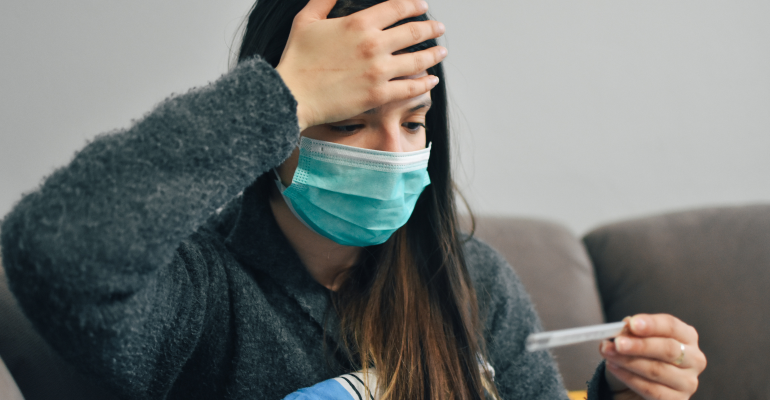The emergence of the JN.1 coronavirus variant, classified as a "variant of interest" by the World Health Organisation (WHO), has sparked concern due to its increased contagiousness and potential impact on public health. Descendant from the BA.2.86 variant, JN.1 is marked by over 30 mutations in the spike protein, prompting questions about its severity, spread and implications for healthcare providers.
First identified in the US in September, JN.1 has swiftly spread across borders, with cases reported in China, the US and Singapore. India, witnessing over 4,000 active COVID-19 cases, detected its first JN.1 variant case in Kerala on December 8. However, despite its higher transmissibility, current data indicates that JN.1 does not exhibit greater severity than other existing strains. The WHO emphasises that existing vaccines remain effective in preventing severe disease and death from JN.1 and other variants. However, ongoing monitoring is crucial to understanding its spread rate, treatment susceptibility, and potential impact on global public health.
Related: Rise of COVID-19 variants: After Eris, Fornax and Pirola emerge
As JN.1 cases surge globally, the UK's Office for National Statistics (UK ONS) has identified two new symptoms associated with COVID-19 infection: trouble sleeping and anxiety. Alongside traditional symptoms including runny noses, coughs, headaches, and weakness, individuals with JN.1 infection have reported these additional challenges. Recognisable symptoms such as fever, cough, shortness of breath, fatigue, muscle aches, loss of taste and smell, sore throat, congestion, runny nose, nausea, and diarrhoea, remain consistent with previous waves.
The COVID-19 pandemic has already been linked to increased stress, anxiety, and sleep disturbances globally. JN.1's potential to exacerbate these issues further highlights the importance of addressing mental health concerns during the ongoing crisis. Elevated stress levels can trigger insomnia, and the constant influx of pandemic-related information and lifestyle changes has contributed to disrupted sleep patterns. Adequate sleep is crucial for maintaining a healthy immune system, making it imperative to address COVID-related sleep issues for overall well-being.
Related: Decoding factors driving growth in the flu vaccine market
Described as "quite devious" by experts, Dr. Thomas Russo, a professor and chief of infectious diseases in New York, highlights a spike protein mutation in JN.1 that makes it more immune evasive than its predecessors. This potential increase in infectiousness highlights the need for stringent preventive measures. These include regular hand washing, wearing a mask in crowded places, keeping physical distance, staying informed about the latest developments, following vaccination recommendations and seeking medical advice if symptomatic.
In addition to these recommendations, general precautions such as disinfecting surfaces, practicing good respiratory hygiene, and prioritising outdoor activities are important in being prepared. As JN.1 continues to spread, a proactive and cautious approach is advised for healthcare providers to effectively manage and mitigate the potential impact of this new variant on public health. Ongoing research, collaboration, and a commitment to public health measures will be crucial in addressing the challenges posed by the JN.1 variant and ensuring the well-being of communities worldwide.





